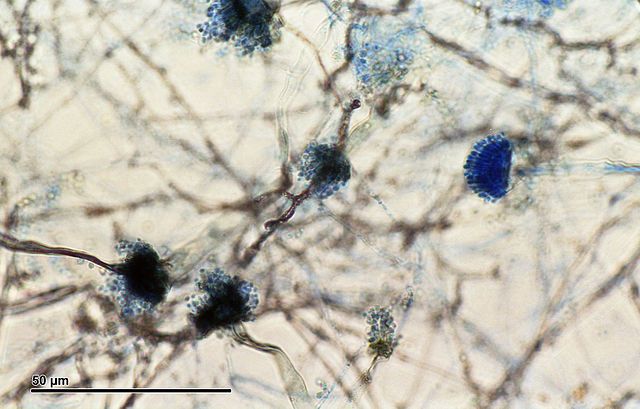The chemical constructions of anti-fungal agents used in agriculture share a lot of similarities with medicaments used to treat fungal infections in humans that an increasing number of patients in Europe are becoming immune to.
The problem appears to lie with a compound called an azole. These are used in both medicines and outdoors for spraying crops and are now under suspicion for worsening the resistance problem that has been found in hospitals over recent years.
READ ALSO: Record number of MRSA cases in Denmark
Ought to use less
Over the last few years, Danish agriculture has used up to 90 tons of these compounds every year.
The crop spraying compound is almost identical to one used to treat patients with a fungal infection called Aspergillus Fumigatus.
Ole Hilberg, a senior doctor, lung-specialist and chair of the Danish Society for Respiratory Medicine is worried. He feels that the use of azoles should be limited.
“We need to find out whether there are alternative methods so that agriculture can cut down on the use of these compounds – precisely to ensure that we will be able to treat patients in future,” Hilberg told DR Nyheder.
Can be deadly serious
At present, it is only people whose immune system has been weakened by a serious illness who have been hit by the fungal infection but both here in Denmark and abroad, patients have been found to be resistant to medicines.
“Numbers-wise, the mortality rate connected with this infection has risen from around 40 to 90 percent, so it is far from irrelevant,” said Maiken Cavling Arendrup from the Danish State Serum Laboratory.
Denmark’s minister of health, Ellen Trane Nørby, would like to see greater co-operation between the environment and food authorities and the health authorities to see what needs to be done.
“When we’ve uncovered the scale of the problems, then it is obvious that we will have to find out whether there is a need for further action on top of the 48 million kroner that we’ve already set aside to strengthen the whole area of antibiotic resistance,” said Nørby.
More information needed
The trade organisation for farming, Landbrug og Fødevarer, emphasises that up to now, there is no definitive proof that it is farming that is creating the resistance. They advise waiting for more information to become available before making any decisions that will affect their members.
“That’s because we know that we are also surrounded by azoles in a number of different contexts,” said the vice chair of the organisation, Lars Hvidtfeldt.













